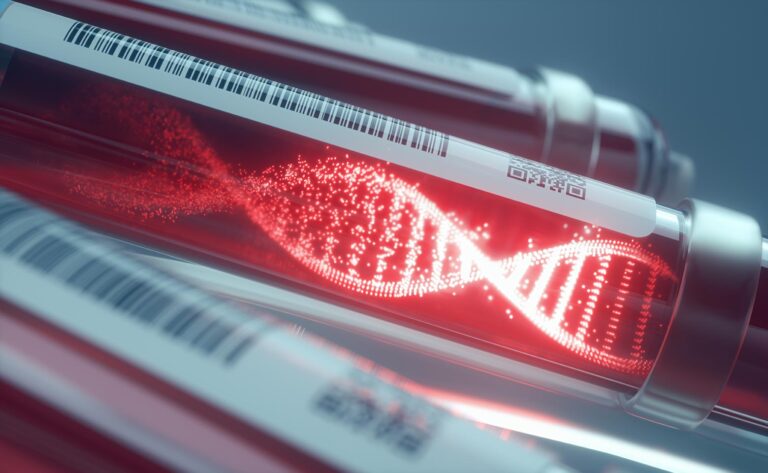
Guardant Health has agreed to acquire Bellwether Bio for an undisclosed price, in a deal designed to further advance the buyer’s pipeline of early-detection cancer diagnostics.
Bellwether Bio is a privately-held Seattle startup focused on using the epigenomic content of cell-free DNA (cfDNA) to develop diagnostics for cancer and other conditions. Bellwether Bio, formerly Haverhill Genetics, spun out of the University of Washington’s CoMotion collaborative innovation hub in 2016.
That year, a team led by Bellwether co-founders Matthew Snyder, PhD, and Jay Shendure, MD, PhD, published a study in Cell about the epigenomics of cfDNA, focused on nucleosome positioning and fragmentomics. The study demonstrated proof-of-concept for a new approach to cfDNA cancer diagnostics designed to overcome key challenges with the more common sequence- or methylation-driven approaches.
“Nucleosome footprints can be used to infer cell types contributing to cfDNA in pathological states such as cancer,” according to the study, Cell-free DNA Comprises an In Vivo Nucleosome Footprint that Informs Its Tissues-Of-Origin. “Since this strategy does not rely on genetic differences to distinguish between contributing tissues, it may enable the noninvasive monitoring of a much broader set of clinical conditions than currently possible.”
In 2017, Bellwether completed an oversubscribed seed financing of $2.75 million, according to a regulatory filing. Participants in the round include the W Fund, WRF Capital, and Bioeconomy Capital along with a number of undisclosed “prominent” “biotechnology and software angel investors.
Bellwether said it developed collaborations with leading cancer diagnostics companies to validate and commercialize its liquid biopsy technology.
The acquisition is expected to close in April, Guardant said. When that happens, Bellwether Bio’s team will join Guardant Health to further advance its early detection product pipeline.
Shendure will act as a scientific advisor to Guardant Health. He is a professor at UW, an investigator at the Howard Hughes Medical Institute, and chair of Bellwether’s Scientific Advisory Board. Snyder is CTO of Bellwether, whose CEO is Shendure’s brother Rahul Shendure, MBA.
‘Groundbreaking Work’
“I am proud of the groundbreaking work the Bellwether team has accomplished to date and believe that joining Guardant’s efforts will speed their path even further,” Rahul Shendure said yesterday in a statement. “Guardant has demonstrated remarkable progress toward its goal.”
Guardant launched its first product in 2014 when it brought to market Guardant360, designed to measure 73 cancer-related genes from circulating tumor DNA (ctDNA). Guardant360 has been used by more than 6000 oncologists, over 50 biopharmaceutical companies and all 28 National Comprehensive Cancer Network centers.
Guardant360 is one of Guardant’s two marketed liquid biopsy tests. The other is GuardantOMNI, a broader panel measuring 500 genes from ctDNA that was launched in 2017.
In January, Guardant launched its LUNAR early-stage cancer assay for use by biopharma and academic researchers. Using a single blood draw, LUNAR is designed to detect early-stage cancer and recurrence of disease through simultaneous detection of both genomic alterations and epigenomic signatures with high clinical sensitivity and specificity.
Guardant plans to present pilot LUNAR data on Sunday at the American Association for Cancer Research (AACR) Annual Meeting 2019, which starts tomorrow and runs through April 3 in Atlanta. Researchers from Guardant and the Samsung Medical Center are set to report results from a pilot study of Guardant’s LUNAR assay in early stage cancer.
The study showed that addition of epigenomics to the assay can potentially lead to significant improvements in sensitivity for stage I and II colorectal cancer (CRC).
“Utilizing a plasma-only sequencing assay incorporating somatic genomic variant detection, epigenomic analysis, and a bioinformatic classifier to filter non-tumor derived variants, ctDNA detection rate in early stage CRC (I-III) is 94% (63/67; 95% confidence interval 86%;98%) with 94% specificity, far outperforming the detection rate of somatic sequence variant detection alone,” the researchers reported. “These results have significant implications for the clinical utility of ctDNA in early stage cancer management.
Said Guardant Health Co-Founder and President AmirAli Talasaz, PhD: “Our early research has shown the strong potential impact of incorporating biologically-relevant epigenomic information on the clinical performance of blood tests for early stage cancer detection.”
“We are excited to welcome the Bellwether team and believe they will enhance our product pipeline as we seek to expand precision oncology to earlier stages of disease,” Talasaz added.











